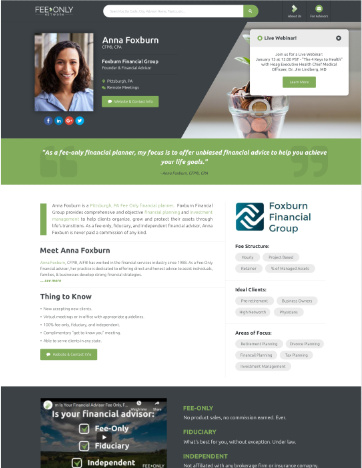
Updated: September 12, 2024
When it comes to helping people find your financial advisory website online, two types of meta tags are particularly important: title tags and meta descriptions. Think of these as your website’s handshake and elevator pitch in the digital world. They play a big role in how your site appears in search results and can greatly influence whether people click through to your website.
If you’re using a website builder like Twenty Over Ten, Squarespace, or Wix, make sure to check their help guides for specific instructions on how to add these meta tags to your site. Each platform has its own way of doing things.
A title tag is like the name tag for each page of your website. It’s the text that appears as the clickable blue link in search results and at the top of your web browser when someone visits your page.
Why are title tags so important?
Taking the time to write clear, descriptive titles for each page of your website can really boost your online visibility and attract more visitors. Try to keep your titles under 60 characters so they don’t get cut off in search results.
If the title tag is your website’s name tag, the meta description is its elevator pitch. It’s a short summary of the page that appears under the title in search results.
Why should you care about meta descriptions?
Spending time on writing engaging, informative descriptions for each page can really pay off in terms of attracting the right visitors to your site. Aim to keep your descriptions between 150-160 characters to ensure they display fully in search results.

Allan Slider is the Founder of FeeOnlyNetwork.com, a one-of-a-kind digital platform that elevates the visibility of fee-only financial advisors, individually and collectively. Fee-Only advisors are ONLY compensated by the client and NEVER make commission by selling financial products, or receiving kickbacks from brokerage firms. Allan is a consumer & investor advocate and a 20+ year veteran of online marketing for financial advisors.
NAPFA & XYPN Members:
Have you claimed your FeeOnlyNetwork.com profile?


If you're seeing this message, it's because the web browser you're using to access our site is much older and no longer supported. Due to privacy and safety concerns, we don't allow older browsers to access our site. In order to access WhyFiduciary.com, please use a newer browser, like Internet Explorer 10 or above, Google Chrome, or Mozilla Firefox.
Download a newer browser